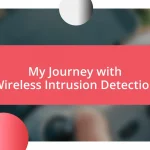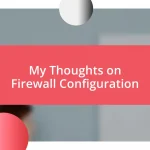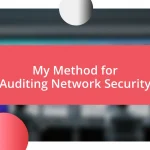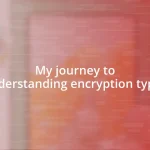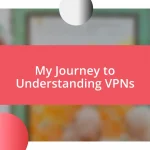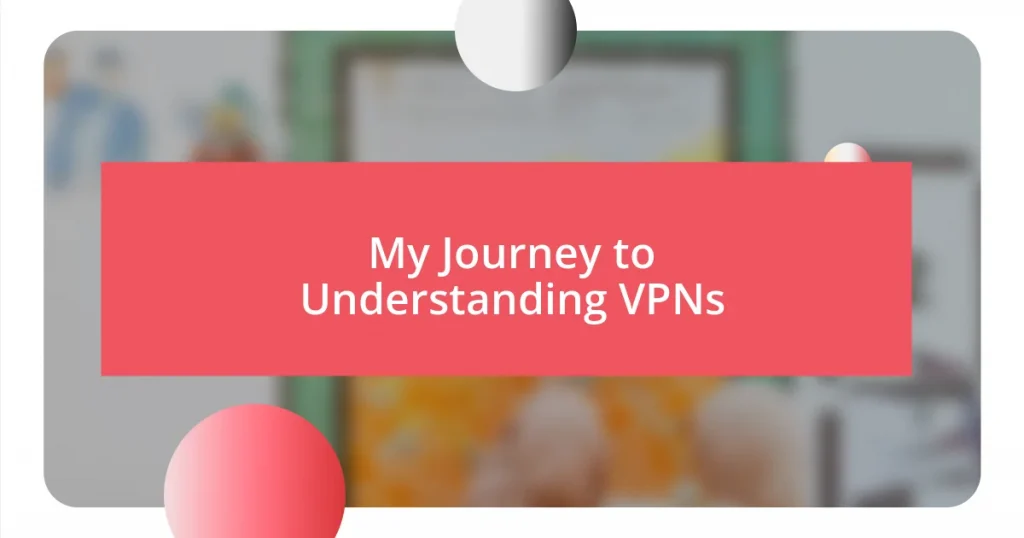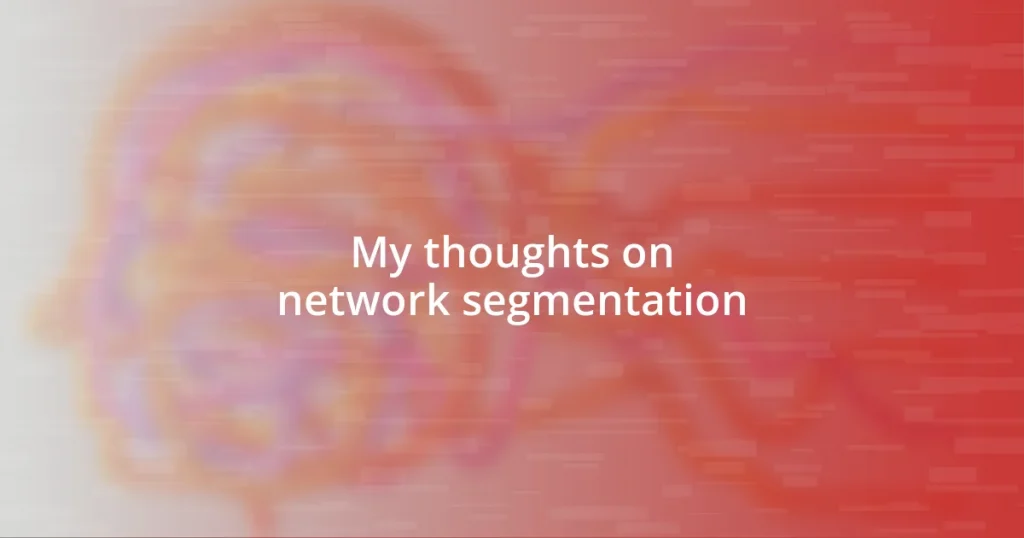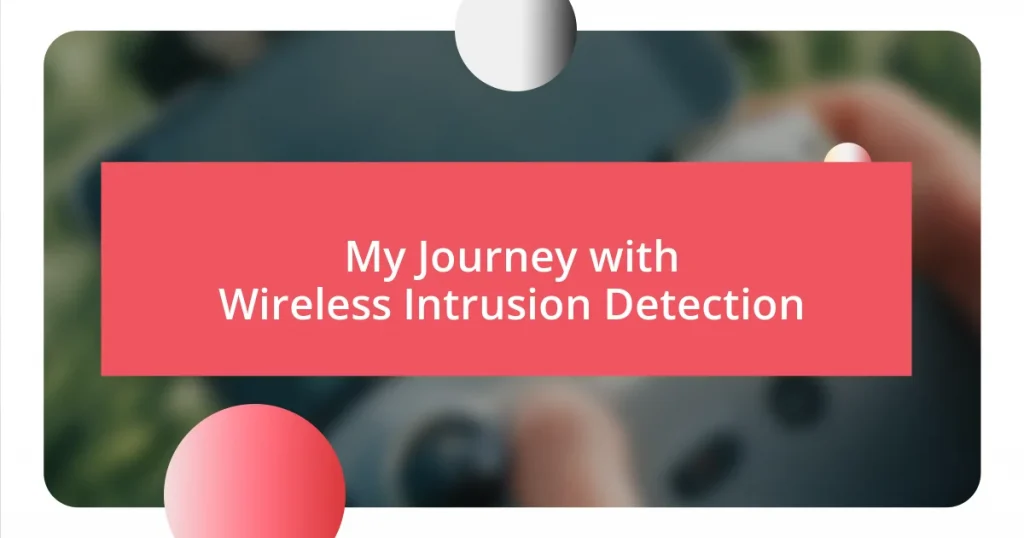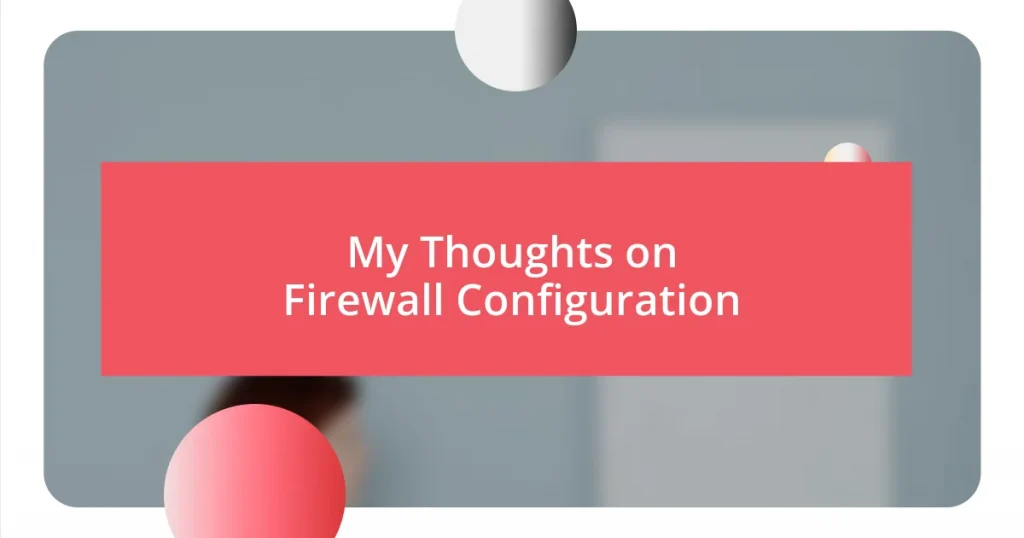Key takeaways:
- The author’s initial curiosity about VPNs was sparked by a conversation with a friend, leading to a deeper understanding of online privacy and cybersecurity.
- Key benefits of VPNs include data encryption, IP address masking, and improved browsing speed, which enhance online privacy and security.
- Common misconceptions include the belief that VPNs provide complete anonymity and that they are only for tech-savvy users, while in reality, many are accessible and can improve internet speeds.
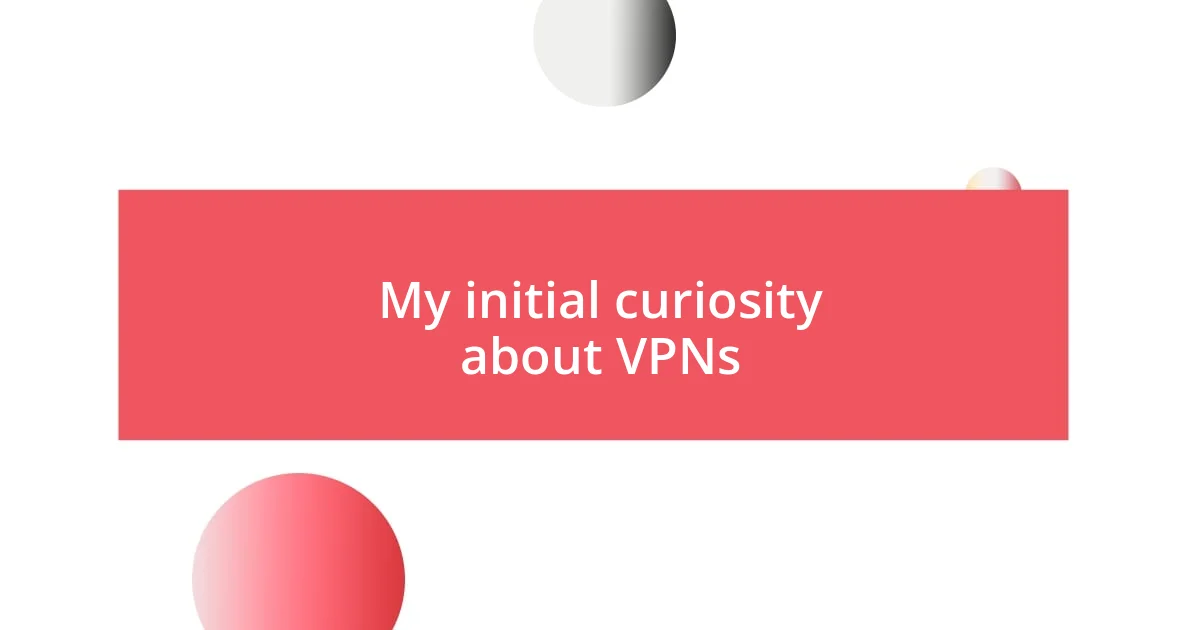
My initial curiosity about VPNs
When I first stumbled upon the term VPN, I had to admit, I felt a mix of intrigue and confusion. The idea of browsing the internet anonymously sounded exhilarating, yet I wondered, was it really possible to hide my online activities? I remember chatting with a friend who had just started using one; his excitement was palpable, and it sparked something in me.
As I delved deeper, I started connecting the dots about cybersecurity and privacy. I recall that moment of realization when I understood how vulnerable we can be online. Have you ever thought about how easily your data could be intercepted? That awareness compelled me to dig further into the world of VPNs, seeking clarity on how they worked and how they could enhance my online experience.
Ultimately, what fueled my curiosity was the blend of necessity and desire for security. I began to envision sitting in a café, sipping coffee while protected by a virtual shield. That image became a metaphor for my quest—how could a simple tool transform my perception of safety in a digital landscape?
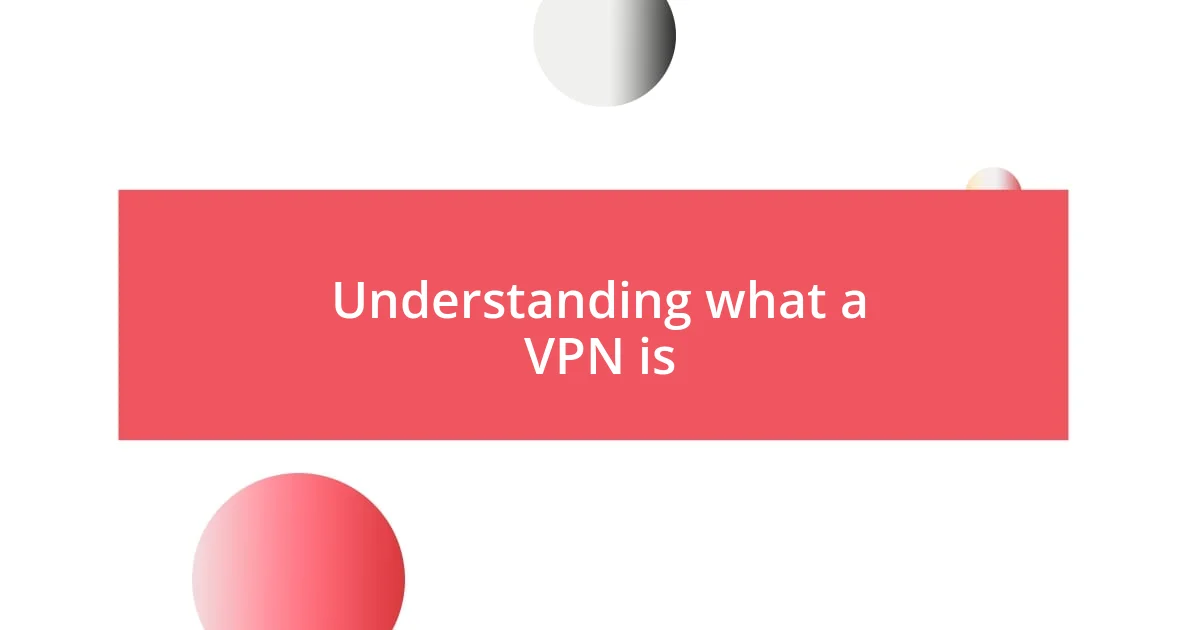
Understanding what a VPN is
A VPN, or Virtual Private Network, is a service that encrypts your internet connection, making it much harder for anyone to see what you’re doing online. I remember the first time I used one; it felt like I had slipped into a secret world where my browsing habits were my own. The encryption ensures that your data is secured from prying eyes, like hackers and even your internet service provider (ISP).
While it might sound technical, I like to think of a VPN as a protective tunnel. Just like a tunnel shields you from the rain while you walk, a VPN shields your online activities from surveillance. It was eye-opening for me to realize that using public Wi-Fi without a VPN is akin to sending postcards with your personal information—everyone can read them!
Now, let’s compare some essential features of different VPN types to further clarify their functions and benefits:
| Feature | VPN Type |
|---|---|
| Security Level | High (e.g., OpenVPN) |
| Speed | Moderate (e.g., PPTP) |
| Compatibility | Cross-platform |
| Ease of Use | User-friendly interfaces available |
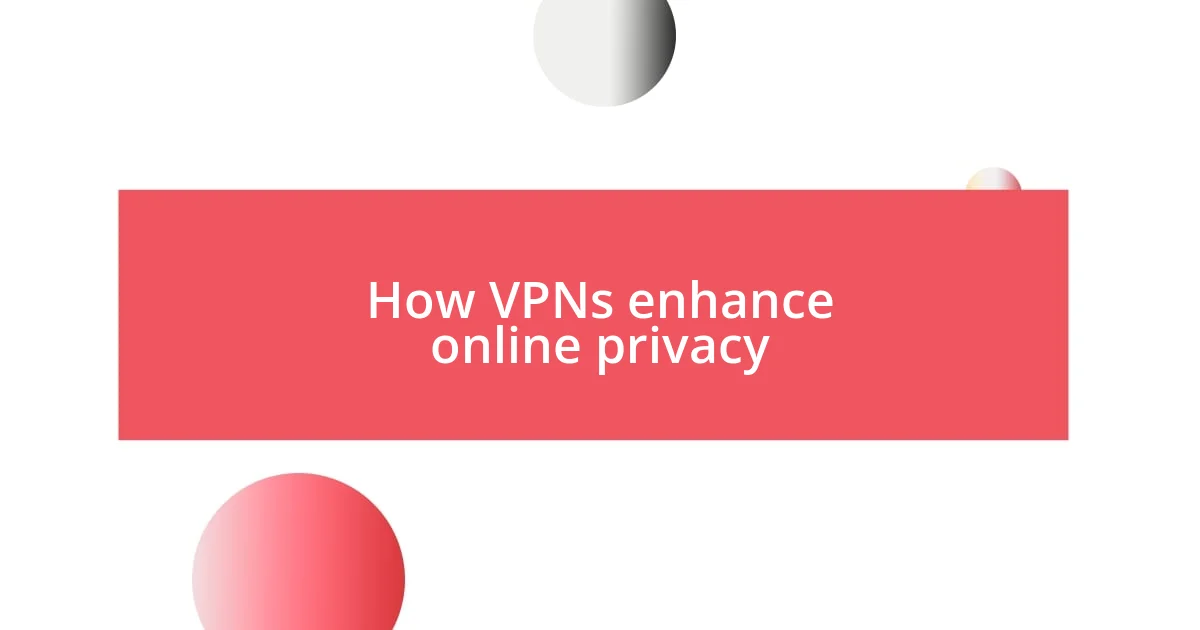
How VPNs enhance online privacy
When I think about how VPNs enhance online privacy, I immediately recall the countless moments I’ve spent in busy cafés, tapping away on public Wi-Fi. I used to feel anxious about the potential threats lurking behind every click. However, once I started using a VPN, that anxiety dissipated. It was like being handed a cloak of invisibility that shielded me from anyone trying to snoop on my online activities.
Here are a few ways VPNs contribute to enhanced online privacy:
- Encryption of Data: VPNs create a secure and encrypted connection, making it nearly impossible for outsiders to eavesdrop on your internet traffic.
- Masking IP Address: By changing your IP address, VPNs prevent websites and services from tracking your real location.
- Avoiding Bandwidth Throttling: ISPs often slow down your connection for certain activities. A VPN can help bypass these restrictions, preserving your browsing speed.
The first time I connected to a VPN, I felt a wave of relief wash over me. It was empowering to know that my online habits were private, letting me browse freely without fear of judgment or intrusion. That experience cemented my understanding of the essential role VPNs play in safeguarding our digital identities.
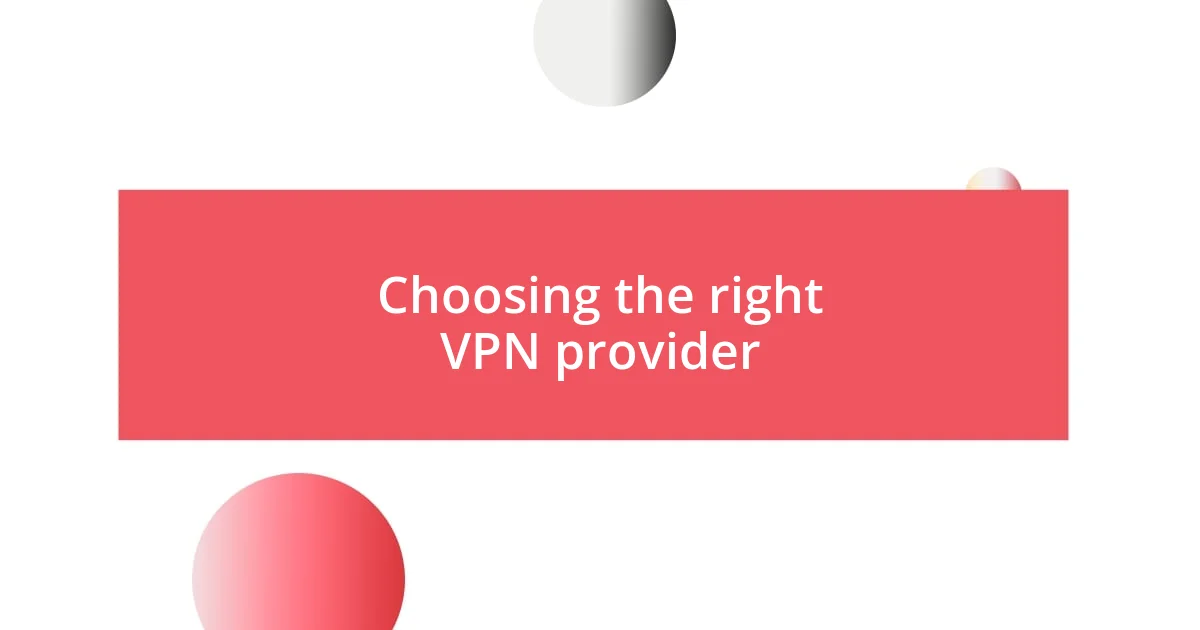
Choosing the right VPN provider
Choosing the right VPN provider can feel overwhelming because of the sheer number of options available. I remember spending hours comparing features and prices, but what stood out to me was the commitment to privacy. It’s vital to check whether the provider keeps a strict no-logs policy, meaning they don’t track your online activities. Why is this important? Because if they don’t keep records, there’s nothing to hand over if someone asks for user data.
Another crucial aspect is the quality of customer support. When I first encountered issues with my VPN connection, I was relieved to discover a responsive support team that guided me through troubleshooting steps. Having reliable support can make or break your experience. Ask yourself: Would you rather navigate technical snags alone or have an expert on hand to help?
Lastly, I found that evaluating VPN speeds is often overlooked. After switching to my current provider, I was amazed at how often my videos buffered before. The impact of a fast, dependable connection on my online experience was transformative. So, before you click “subscribe,” consider testing out the free trial or money-back guarantee. It was definitely worth it for me—I’ve felt more connected and engaged online than ever before.
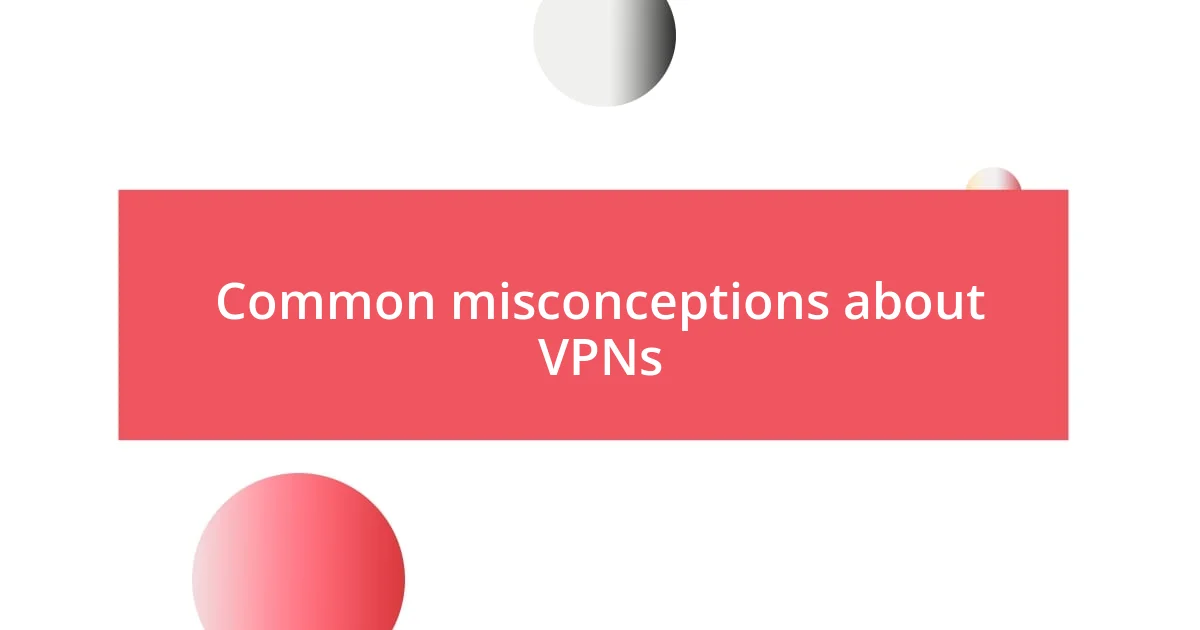
Common misconceptions about VPNs
Misunderstanding how VPNs operate is common, and one prevalent misconception is that they provide complete anonymity online. I used to believe that simply using a VPN would shield me from all traces of my online activities. However, it became clear that while a VPN masks my IP address, other factors—like cookies and account logins—can still expose my identity. Have you ever thought about how much personal data you willingly share while browsing? It’s essential to be aware that true anonymity requires a broader approach, including being mindful of the information we disclose.
Another myth I encountered is that VPNs are only for tech-savvy individuals. In my early days of online security, I thought VPNs were too complicated for someone like me. To my surprise, many services offer straightforward setup processes and user-friendly interfaces. I’ll never forget the moment I realized that even my less tech-savvy friends could benefit from using a VPN. It hit me that online security should be accessible to everyone, regardless of their comfort level with technology.
Additionally, there’s a belief that using a VPN significantly slows down your internet connection. I’ll admit, I had reservations about this when I first started my journey with VPNs. To my delight, I discovered that the right provider could actually enhance my speeds, especially for streaming content. Isn’t it frustrating when a movie buffers? Thankfully, with the right VPN, those interruptions became a thing of the past. My experience has shown me that with a little research and testing, a VPN can truly complement your online activities rather than hinder them.
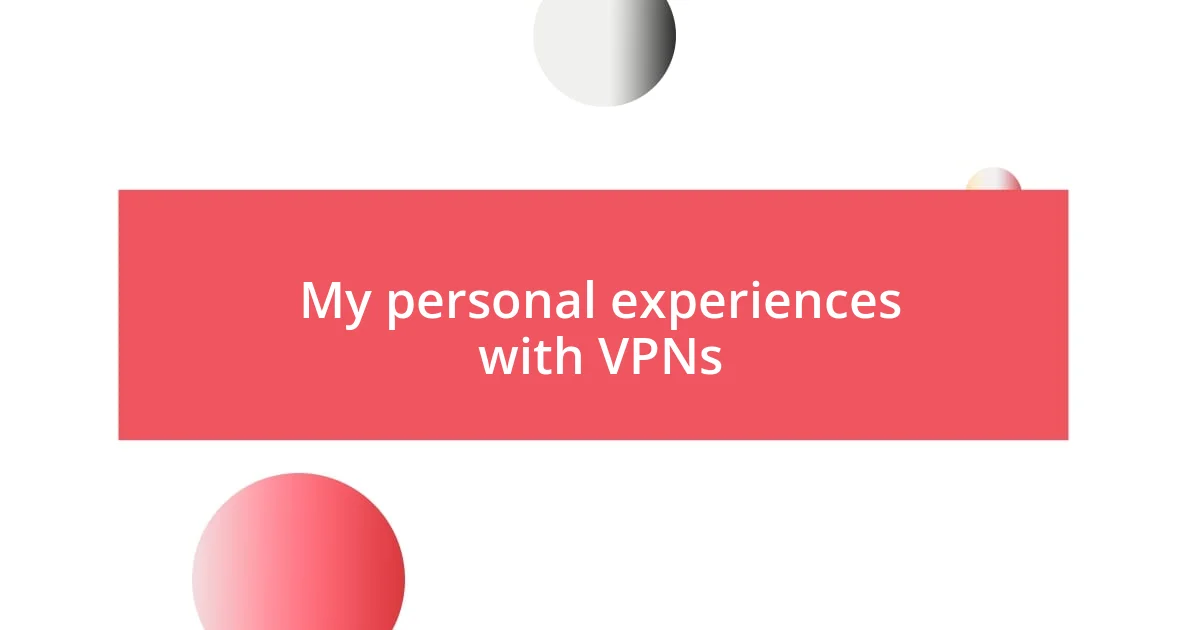
My personal experiences with VPNs
Navigating the world of VPNs was quite the adventure for me. I recall my first experience setting up a VPN; it felt like unlocking a new level in a video game. Suddenly, I had access to global content I had only dreamed about, and it was thrilling to watch shows from other countries with just a click. Have you ever felt that rush of discovery? It’s amazing how something as simple as a VPN can open up a world of possibilities.
One evening, while sipping my usual cup of coffee, I decided to use a VPN to connect to a server overseas. I wanted to test out a website that was geographically restricted. The moment I realized I could bypass these limitations was exhilarating. It’s like finding a hidden door in a familiar room—once opened, everything felt fresh and exciting. That moment solidified my understanding of what a VPN can truly offer: freedom and flexibility.
However, my journey hasn’t been without its bumps. I vividly remember a time when I accidentally connected to an unreliable server, and it made my online gaming experience almost unbearable. I was frustrated as I lagged behind my friends during gameplay, and it was a hard lesson learned about choosing stable connections. Now, I’m more diligent in selecting servers. Have you had any tech mishaps that made you rethink your choices? Those moments can be frustrating but ultimately pave the way for better decisions moving forward.

